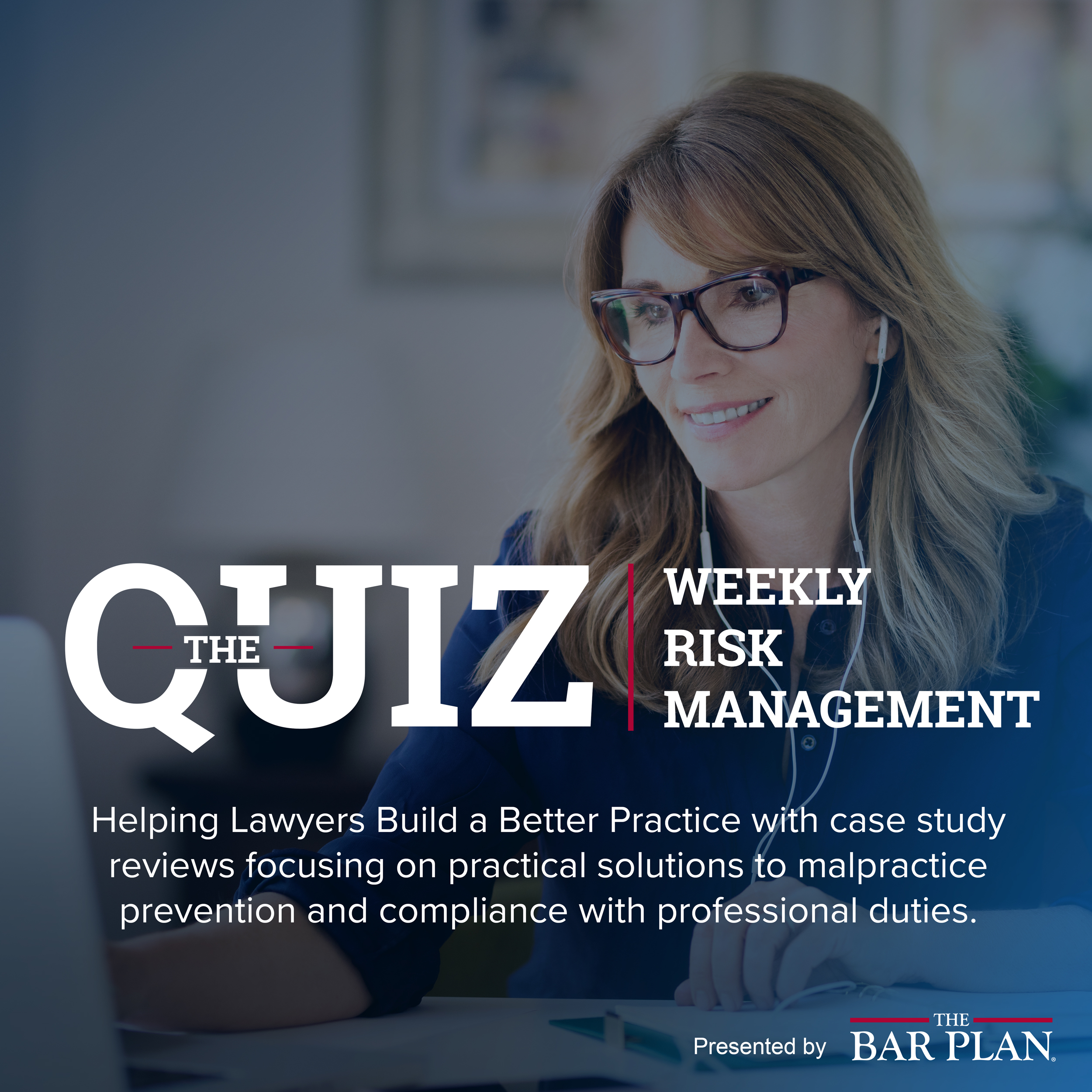QUESTION:
IN THE STATE OF TENNESSEE: You serve as a mediator in domestic legal matters, including motions to modify. You mediate a motion to modify between two unrepresented individuals, and they ask you to prepare the necessary documents for their modification. You:A. May draft the documents as a neutral mediator.
B. May draft the documents as an attorney for both parties to the modification.
C. May only draft the documents if all parties give informed consent, attorney represents only one party, and the unrepresented party fully understands the ramifications of the arrangement. D. Shall not draft the documents.
CORRECT ANSWER: Answer of 3/19/2021 WITHDRAWN in Tennessee.
This Tennessee-specific update to a previous risk management quiz is sent in recognition of a Tennessee distinction between mediators and other third party neutrals brought to our attention by a sharp-eyed reader. Tennessee Rule of Professional Conduct 1.12(a) prohibits judges, adjudicative officers, law clerks and staff attorneys to same, and arbitrators from “representing anyone in connection with [the] matter…unless all parties to the proceeding give informed consent, confirmed in writing.” The Tennessee Rule 1.12: Former Judge or Arbitrator does not reference mediators as do the parallel rules in Missouri, Kansas, Indiana, New Mexico or the ABA Model Rule. For the rules relating to mediators, one must look to Tennessee Rule of Professional Conduct 2.4: Lawyer as a Dispute Resolution Neutral and Tennessee Rule 31: Alternative Dispute Resolution-Mediation. Tennessee Rule of Professional Conduct 2.4(e)(1) states that upon termination of the lawyer’s services as a neutral, the lawyer may draft a settlement agreement but shall not represent the parties otherwise in connection with the matter. Informed consent of the parties is required. See TRP 1.0(e) for the definition of “Informed Consent”. Tennessee Rule of Professional Conduct 2.4(c)(6) prohibits a lawyer/mediator from rendering legal advice to a party but may advise a party to seek independent legal representation if the lawyer-mediator believes a party does not understand how a proposed agreement might affect the party’s legal rights. Tennessee Rule 31, § 10(c) states that a mediator shall “refrain from participation” as “attorney” or “advisor” in the matter in which the mediation was conducted. The rule further states that mediators “shall assist the parties in memorializing the agreement” at the end of the mediation and explicitly references some documents that the mediator may “assist” with “filling in.” See Rule 31, § 10(c)(5). Tennessee Lawyer-Mediators who have questions regarding their duties at the conclusion of the resolution process may seek additional guidance from the Ethics Advisory Opinion Committee of the ADRC relating to any duties they perceive may be in conflict under these rules. See Rule 31, § 9(d)(1) Ethics Advisory Opinion Committee.Malpractice Insurance : Not All Policies Are The Same
Lawyers' Malpractice Insurance can be complicated and nuanced. In this explainer video we unpack an important policy differentiator that may save you money and protect your practice in the long run: FDCPA Coverage.Want more Risk Management Content?
CLICK HERE TO GET RISK MANAGEMENT CONTENT SENT TO YOUR EMAIL.
